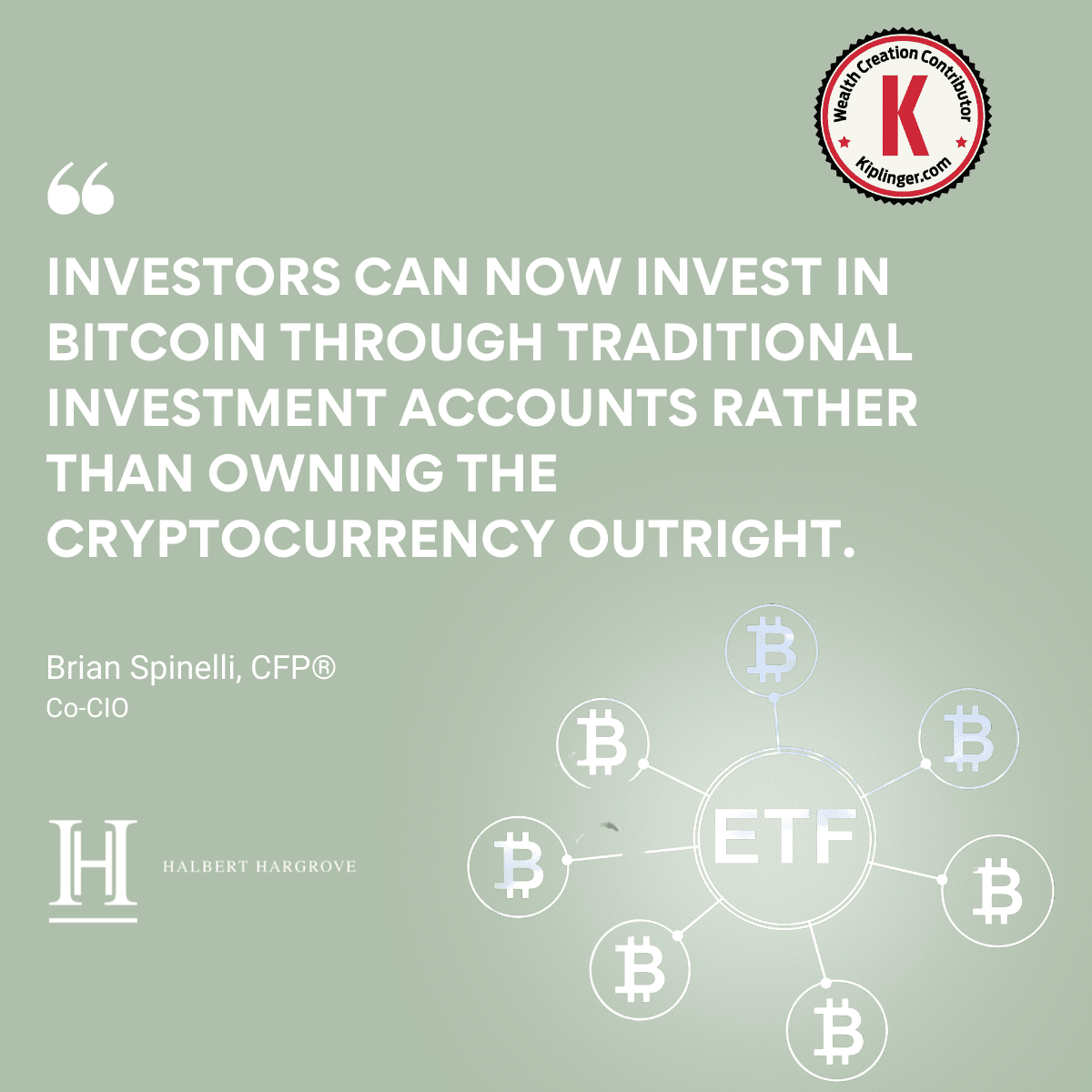Investors can now invest in bitcoin through traditional investment accounts rather than owning the cryptocurrency outright.
By Brian Spinelli, CFP®, AIF®, Co-Chief Investment Officer as featured in Kiplinger
Bitcoin has had a phenomenal journey from a niche digital currency to a trillion-dollar asset class in a 15-year period.
The January 2024 approval of 11 spot bitcoin ETFs was a watershed moment, presenting investors with a gateway to being able to invest in bitcoin through their traditional investment accounts. We expect this will continue to boost broader investor adoption of bitcoin and attract investors who previously did not want to open a digital wallet or a digital asset custodial account. The approval of 11 products all at once can seem overwhelming, so the following guide can be used as a tool for investors who are interested in adding these types of investments to their portfolio.
Understanding spot bitcoin ETFs
An exchange-traded fund (ETF) is a type of pooled investment security that can be bought and sold much like an individual stock. The main difference between an ETF and a mutual fund is that though a mutual fund is also a pooled investment, it trades only once a day after markets close. An ETF can be structured to track anything from the price of an individual commodity to a large and diverse collection of securities. ETFs can even be designed to track specific investment strategies.
A spot bitcoin ETF is a breakthrough financial vehicle that tracks the current price of bitcoin, providing a simplified investment approach without the complications of direct ownership. In contrast to mutual funds that trade once at the end of the day, these ETFs operate similarly to stocks, allowing for real-time trading, adding flexibility to investment strategies.
Spot bitcoin ETFs operate by securing and holding actual bitcoin, stored in secure digital wallets by custodians. These custodians play a crucial role in safeguarding assets, employing sophisticated security measures such as cold storage to mitigate theft risks.
Bitcoin trades 24/7 throughout the world, but remember, the 11 spot products that were approved will trade only when markets are open, even though their underlying investment will be trading all of the time. For example, if you are looking at the spot price on a weekend, you will not see the ETF price changing until markets open the coming week.
See Full Article


